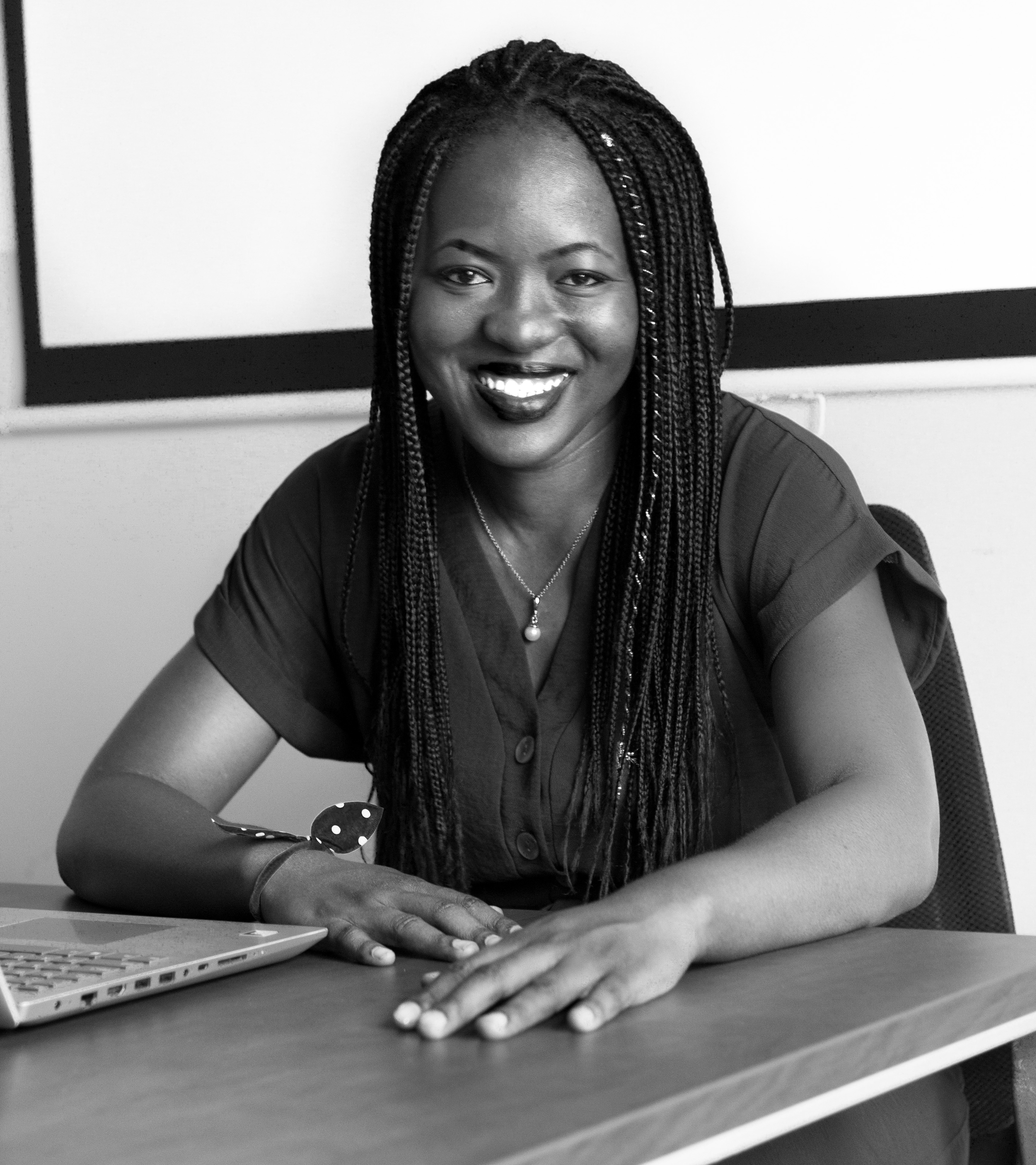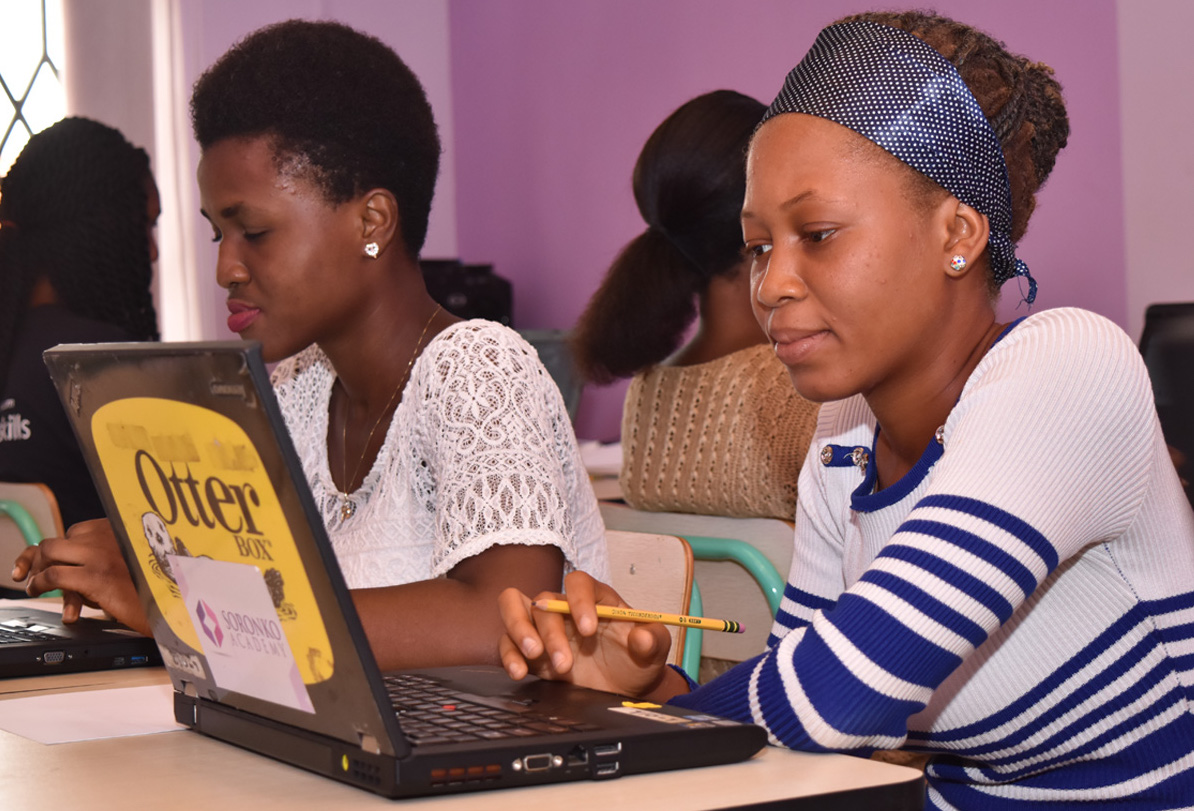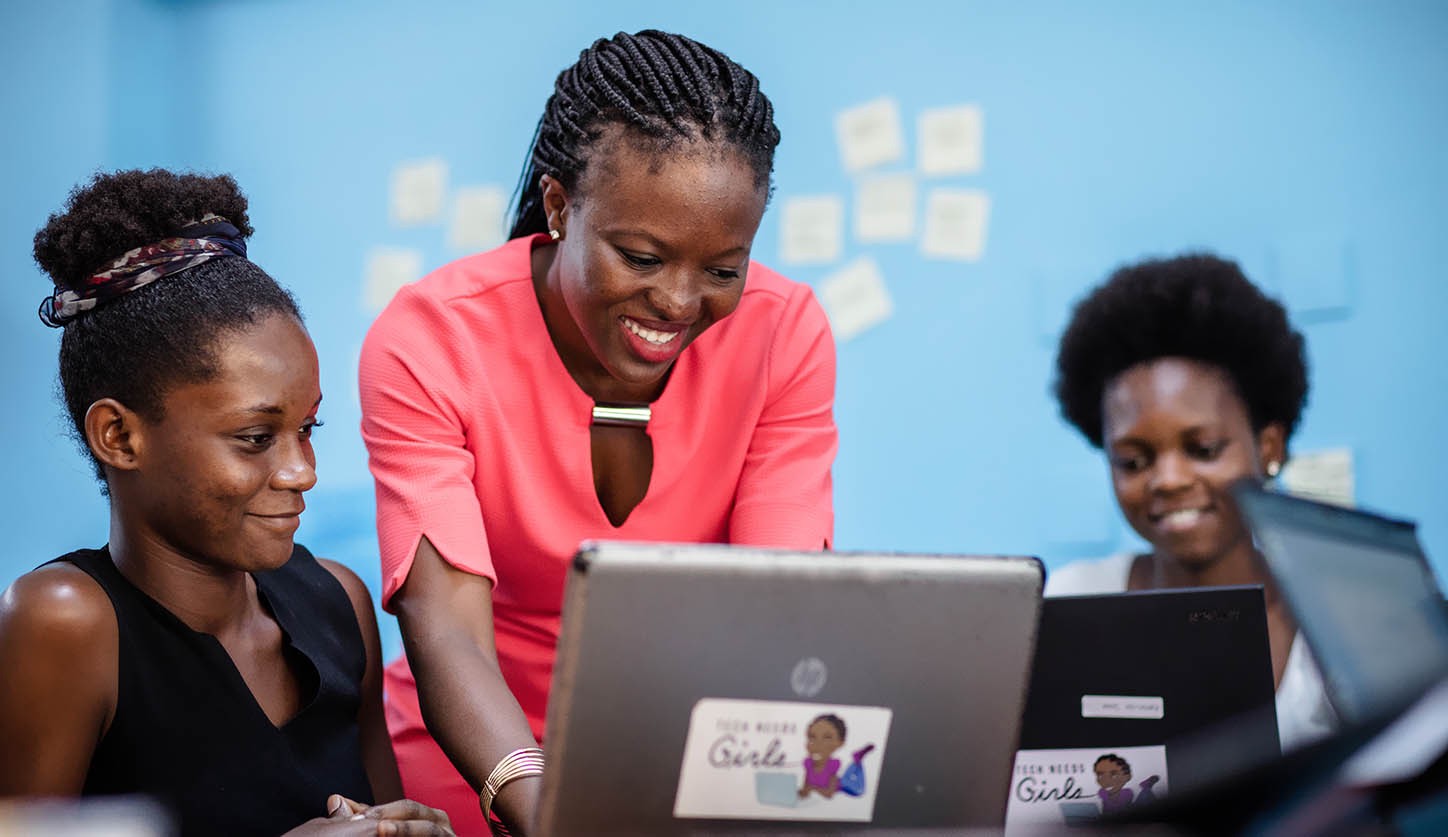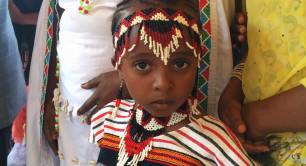Closing the gender gap? It’s not rocket science
In Ghana, Soronko Academy is training the next generation of female computer scientists – challenging gender stereotypes and re-writing the African story as a continent of technological innovation. DICE Young Storymaker Imani Dlamini meets founder Regina Honu to find out more
In 2012, Regina Honu decided to leave her comfortable job at a prestigious bank in Accra, itching to start a business with a social impact. Shortly before she quit, though, another opportunity came up: Microsoft invited her for an interview, even flying her to the company’s US headquarters.
But something didn’t feel right. “I thought: Oh, my goodness, it would be a nice dream to work at Microsoft,” the computer science graduate tells Pioneers Post, over Skype from her home in Accra. “But then I would be one of the millions of people contributing my very little quota to Microsoft – but if I stayed in Ghana, I could really make a change.”
Honu was in her late 20s at the time, and the decision to start a business sparked mixed reactions. While her father supported the move – “he felt that I wasn’t exploring my full potential at the bank” – her mother was worried about her leaving a well-paid, secure job, not to mention concerned about her finding a husband. Even Honu’s boss said she would be back within six months. But she had made up her mind. Within a few years, she would go on to achieve international recognition for her work.
Rocket power
 Honu has always been someone who “colours outside of the lines,” as she puts it – not least in her passion for the still male-dominated fields of science and technology.
Honu has always been someone who “colours outside of the lines,” as she puts it – not least in her passion for the still male-dominated fields of science and technology.
She was exposed to these subjects earlier than most: when she was 12, her father brought home a computer, a luxury for most middle-class Ghanaians in the mid-1990s.
But if an interest in technology was nurtured at home, this wasn’t the case at school. One day, inspired by a movie she’d seen, she decided to design and build a prototype of a rocket. It was quickly dismissed.
“My teacher said it was impossible, that girls don’t build rockets and I would end up in the kitchen,” she says.
My teacher said that girls don’t build rockets and I would end up in the kitchen
The sentiment reflects one of the major challenges women face in Ghana. Though the law safeguards women’s rights, women still often face discrimination, lower pay and lower levels of political participation than men. In some circles, they are expected to be mothers and homemakers.
Honu is among those proving otherwise. Before the age of 30, she had already broken glass ceilings as the only female in the IT department of two international banks, Zenith and Fidelity, having previously excelled as one of the few female computer science students in her class.
But she is most proud of her decision to quit her banking job because it was “so scary… there was no safety net”.
The leap has paid off. In 2012 Honu singlehandedly started the for-profit software company Soronko Solutions from her parents’ home in Accra. Alongside, she created ‘Growing Stems’, a programme that taught science, technology, engineering and mathematics (STEM) skills to children in rural parts of Ghana.

Above: Soronko Foundation as a whole, which includes Tech Needs Girls and Soronko Academy, has trained at least 6,000 girls to date.
However, working with rural communities she noticed that boys dominated the sessions, while the girls “didn’t really participate”. In one session, she recalls a boy telling a girl that laptops are “not for girls”.
“So, I figured, in order to get more girls [involved], they needed to see more role models, other girls like me”.
In one session, she recalls a boy telling a girl that laptops are “not for girls”
That spurred Honu to develop Tech Needs Girls in 2013, a movement that engages female volunteer mentors, either university students or graduates in computer science, to teach girls aged 6-18 how to code and create technology. First targeting 50 girls from the Kumasi region, the programme has since expanded to eight other regions of Ghana and even into neighbouring Burkina Faso.
Why is this training needed? In low-income areas where the project began, girls are vulnerable to exploitation through child marriage – a financial ‘opportunity’ that means parents may not invest in a daughter’s education.
“The value of a girl is in her bride price. That’s the only value she is bringing in the family,” Honu explains. The problem is widespread: according to UNICEF, more than one in five girls in Ghana is married before the age of 18, and 5% before they turn 15.
Yet there are clear long-term benefits of developing expertise in technology. “Digital skills are in demand and they are top-paying skills that will allow women and girls to have economic independence,” says Honu. “It is important that women and girls are not left behind in the digital revolution.”
Digital skills are in demand and they are top-paying skills
Convincing others of this was difficult, however: people said coding classes would be too advanced for girls to grasp. Since many parents were not convinced that computer skills were important, Honu decided to approach schools – and was surprised to find that male principals seemed more excited about the programme than the female ones. Honu believes this is because men in Ghana are much more exposed to conversations around technology and science, and therefore more likely to see their value – yet another reason her work is important.
Practical learning
Tech Needs Girls alumni have gone on to higher education, win scholarships to study in the US, and establish businesses or foundations. Meanwhile the Soronko name has grown and grown – partly thanks to social media, which Honu says has helped garner support and “catapult the social enterprise from just a local brand to an international brand”.
But Tech Needs Girls still faced some pushback from communities who didn’t support girls working on tech projects, as well as a lack of equipment and other resources.

Above: Regina Honu (pictured centre) established Tech Needs Girls in 2013, deploying female volunteer mentors to teach girls how to code and create technology.
Honu realised it wasn’t enough to just drop into a community and teach computer skills – so she created the Soronko Academy in 2016 – claimed to be the first coding and human-centred design academy in West Africa.
The Academy teaches computer skills to a range of people including unemployed women, deaf and autistic children, and students as young as five and up to 75 years old. While education in Ghana tends to be overly focused on theory and rote learning, at the Academy it is highly practical, with students encouraged to create their own projects.
The issue is close to Honu’s heart. As a teen on an exchange programme in Norway, she realised that students back home were not encouraged to ask questions. And she recalls struggling to apply what she’d learned: “I could draw a very advanced electrical circuit, but if you gave me two wires and a bulb, I would be looking at you, like: ‘What just happened?’”
Today, she’s an advocate for making lessons in Africa much more practical: “We should be using examples with things around us, there should be more local content, we should be trying to solve problems as we are learning.”
Leading women
Soronko Foundation as a whole, which includes Tech Needs Girls and Soronko Academy, has trained at least 6,000 girls to date. For now, Honu is mostly focused on Soronko Academy – partly because, she admits, it’s “very hard” to put full energy behind both the software business and the foundation.
But it’s also because the Academy is now less dependent on profits generated by Soronko Solutions (the business now passes some client work to students to deliver). Fee-paying students now help cover operational costs and subsidise scholarships for underprivileged students. The Academy also gets some donations and rents out its space to other organisations that want to offer training.
Soronko Solutions is part of a growing wave of social enterprises in Ghana, where there were an estimated 26,000 social enterprises in 2016, according to British Council research. Many of these are either supporting women and girls (see box), or empowering women as business owners: another British Council report found that nearly 40% of social enterprises are led by women, in most cases boosting their confidence and self-worth.
|
Women and social enterprise in Ghana Many social enterprises in Ghana are helping address gender inequality and supporting women’s empowerment. A survey of over 100 social enterprises working in these areas found that this business model:
Women social entrepreneurs face similar barriers as their male counterparts – plus additional ones as a result of their gender, including:
Source: Activist to Entrepreneur: The role of social enterprise in supporting women’s empowerment in Ghana (British Council, 2018) |
Ghana has a high rate of female-owned business generally – in fact, they are more inclined to engage in entrepreneurial activities than men, according to the Mastercard Index of Women Entrepreneurs. But this is driven more by necessity. And Honu says women choosing this path still face barriers, including getting approval from a husband or father: “The majority of African women still have to get permission from somebody… there is some man deciding your fate.”
Another challenge is access to funding. In Ghana, men own 81% of land and wealth, meaning women are less likely to have access to assets they can use as collateral for loans. (In some regions, a husband’s death means his widow must relinquish her property to her male relatives.)
Furthermore, women face more psychological barriers than men, Honu believes. While men are encouraged from a young age to be entrepreneurial and to become leaders in the community, she says, many women worry about what others will think and are more afraid of failure (as other research has also emphasised).
Yet Honu believes African women (and men) can have a stake in the new technological age – which can, in turn, produce higher incomes and solve social challenges. Investing in computer skills would also help shift the narrative of Africa from “famine [to] innovation”. A key step, she insists, is education that helps young people to become “critical thinkers”.
“The teacher has to be okay with a two-way interaction,” she says. “The teacher should not feel threatened or intimidated to have students that question the status quo.” Not even if they turn up to class with a homemade rocket.
Regina Honu will be speaking at this year’s Social Enterprise World Forum in Addis Ababa, Ethiopia.
Imani Dlamini is a DICE Young Storymaker – one of fourteen young journalists recruited by Pioneers Post and the British Council from six countries to report on social and creative enterprise.
Photo credits: Leticah Amavin / Soronko Academy




